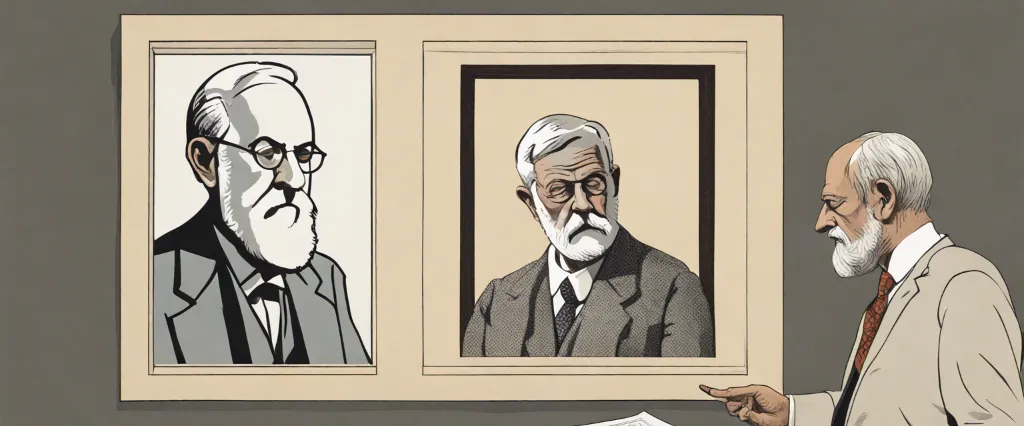
In analyzing the intricate dynamics of human relationships, two prominent authors have delved into the complexities of marriage and psychoanalysis in their respective works, “Why Marriages Succeed or Fail” by John M. Gottman and “Freud” by Peter Gay. These two books offer a unique perspective on the inner workings of individuals and their relationships with others, shedding light on the different factors that contribute to successful marriages and the revolutionary insights of Sigmund Freud. While Gottman focuses on the behavioral patterns and communication styles that determine the outcome of relationships, Gay explores the groundbreaking theories of psychoanalysis proposed by Freud. By comparing these two works, we can draw parallels between the interpersonal dynamics of romantic partnerships and the foundational principles of modern psychology, ultimately gaining a deeper understanding of human behavior and the mechanisms behind successful relationships.
Brief Summary of Two Books
Why Marriages Succeed or Fail by John M Gottman
“Why Marriages Succeed or Fail” by John M. Gottman explores the science behind successful and failing marriages. Gottman, a well-known psychologist and relationship expert, delves into his research findings from observing and analyzing hundreds of couples over the course of several years. He identifies key behaviors and patterns that are indicative of the success or failure of a marriage.
Gottman introduces the concept of the “Four Horsemen of the Apocalypse” in marriage, which are criticism, contempt, defensiveness, and stonewalling. He explains how these harmful behaviors can negatively impact a relationship and lead to its downfall. On the contrary, he highlights the importance of positive interactions and communication styles that foster intimacy and trust in a marriage.
Through detailed case studies and real-life examples, Gottman provides practical advice and strategies for couples to strengthen their relationship and avoid common pitfalls. He emphasizes the significance of emotional connection, conflict resolution, and understanding each other’s needs and desires.
Overall, “Why Marriages Succeed or Fail” offers valuable insights into the dynamics of successful and failing marriages, providing readers with tools to navigate the challenges and enhance the quality of their relationships.
Freud by Peter Gay
“Freud” by Peter Gay is a comprehensive biography that delves into the life and work of Sigmund Freud, the founder of psychoanalysis. The book provides a detailed look at Freud’s early years, his upbringing in Vienna, his education, and his groundbreaking discoveries in the field of psychology. Gay explores Freud’s theories on the unconscious mind, sexuality, and the Oedipus complex, as well as the various controversies and debates that surrounded his work. The biography also examines Freud’s personal life, including his relationships with family, friends, and colleagues, as well as his struggles with chronic illness and the rise of anti-Semitism in Europe. Overall, “Freud” offers a compelling portrait of one of the most influential figures in the history of psychology.
Comparison between Two Books

Similarities in Psychology
Both books delve into the realm of psychology, attempting to understand human behavior and relationships through different lenses.
In “Why Marriages Succeed or Fail” by John M Gottman, the author explores the psychology behind successful and unsuccessful marriages. He discusses the importance of emotional connections, communication styles, and conflict resolution techniques in maintaining a healthy relationship. Gottman utilizes research and data to support his observations and provide couples with practical advice on how to strengthen their marriages.
In “Freud” by Peter Gay, the author delves into the life and work of Sigmund Freud, the founder of psychoanalysis. Freud’s theories revolve around the unconscious mind, childhood experiences, and the impact of repressed desires on behavior. Gay provides a comprehensive overview of Freud’s contributions to psychology and discusses the controversies surrounding his ideas.
Both books highlight the significance of understanding human behavior and the complexities of relationships. They emphasize the importance of self-awareness, effective communication, and seeking professional help when needed to navigate psychological challenges. Ultimately, both books underscore the role of psychology in shaping our thoughts, emotions, and behaviors in various aspects of life.
Divergences in Psychology
“Why Marriages Succeed or Fail” by John M. Gottman and “Freud” by Peter Gay both delve into the realm of psychology, but they focus on different aspects of the field.
In “Why Marriages Succeed or Fail,” Gottman offers insights into the dynamics of relationships and how they can either thrive or deteriorate over time. He uses his research on married couples to identify common patterns and behaviors that lead to successful marriages, as well as those that contribute to failure. By using evidence-based approaches, Gottman provides practical advice on how couples can communicate effectively, resolve conflicts, and build a strong foundation for a lasting relationship.
On the other hand, Peter Gay’s “Freud” delves into the life and work of Sigmund Freud, the pioneering psychologist who founded psychoanalysis. Gay provides a detailed biography of Freud, exploring his theories on the unconscious mind, dream interpretation, and the Oedipus complex. He also delves into Freud’s personal struggles and the controversies surrounding his work, shedding light on the complex nature of his influence on psychology.
The divergence in psychology between these two books lies in their focus and approach. While Gottman’s book is heavily rooted in empirical research and offers practical advice for couples, Gay’s book is more historical and theoretical in nature, exploring the life and work of a prominent figure in psychology. Ultimately, both books contribute valuable insights into the field of psychology, albeit from different perspectives.

Conclusion
It ultimately depends on the reader’s personal interests and preferences. “Why Marriages Succeed or Fail” by John M. Gottman is a practical guide to understanding and improving relationships, particularly marriages, based on Gottman’s extensive research in the field of psychology. On the other hand, “Freud” by Peter Gay is a biographical account of the life and work of the famous psychologist Sigmund Freud, providing insights into his theories and their lasting impact on the field of psychology.
If you are looking to gain insights into relationship dynamics and practical advice on improving your own relationships, “Why Marriages Succeed or Fail” may be more relevant for you. However, if you are interested in learning about the life and theories of one of the most influential figures in the history of psychology, then “Freud” by Peter Gay may be a more compelling choice. Ultimately, both books have merit and can offer valuable insights depending on your interests and goals.


